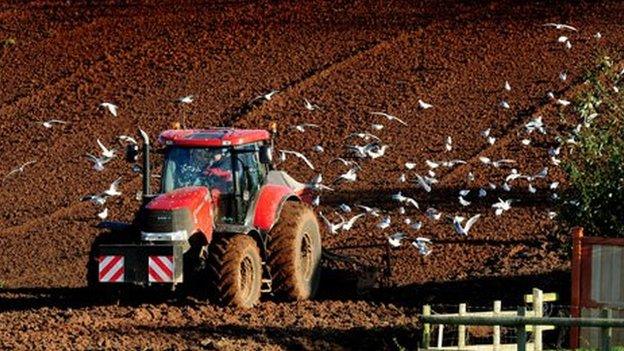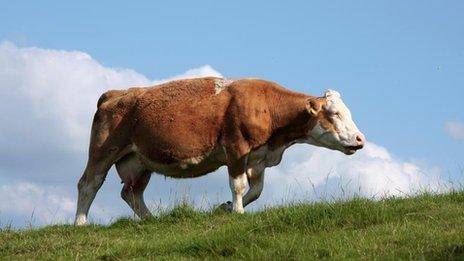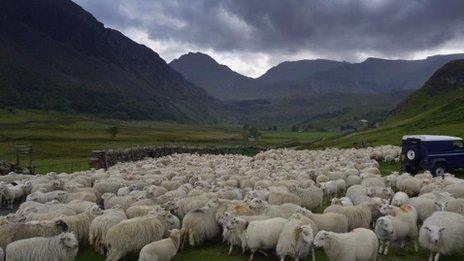Ministers can protect farm wages following court ruling
- Published

Welsh farm workers' wages were protected while the Supreme Court was considering its decision
Welsh ministers can protect the wages of 13,000 farm workers, in light of a ruling by the Supreme Court.
It comes after a dispute over whether Wales had the power to set minimum wages, or if that right laid with the UK government.
UK Attorney General Dominic Grieve originally blocked a law passed by AMs last year, saying it was not within the assembly's powers.
UK ministers said they were grateful for clarity on the issue.
The dispute arose after the assembly passed a law last year to set minimum wages, and the terms and conditions, of agricultural workers in Wales after the UK government abolished the Agricultural Wages Board, which had regulated the sector.
On Wednesday, First Minister Carwyn Jones said the "significant" Supreme Court judgment "goes some way to clarifying the complexities of the current devolution settlement".
The Welsh government said it could now create an Agricultural Advisory Panel to set minimum wage levels and "promote skills development and career progression" in farming.
Devolution arrangements
But the first minister warned "we cannot continue to have bill after bill" referred to the Supreme Court "with all the time, cost and uncertainty that involves".
He called for Wales to move to a form of devolution where powers are assumed to rest with the assembly in cases like this, unless legislation specifically rules this out.
Welsh Secretary David Jones said UK ministers were "grateful to the Supreme Court for providing clarity on this issue" and they would "study the judgment in detail and consider its implications".
"In its judgment, the court has favoured a broader interpretation of the provisions in the Government of Wales Act that govern the assembly's competence," he said.
David Jones said UK ministers would "continue to make every effort to ensure that the legislative arrangements for Welsh devolution work effectively."
Assembly Shadow Rural Affairs Minister Russell George blamed "rushed" legislation for much of the confusion over the agricultural bill producing "sloppy law-making, doubts over competence, and months of uncertainty for Welsh farmers".
Plaid Cymru agriculture spokesman Llyr Gruffydd said: "The case for moving to a reserved powers model has been made and has been accepted by all parties in the assembly, and adopting this model would avoid these unnecessary delays."
Liberal Democrat Eluned Parrott agreed Wales should move to a form of devolution more like the Scottish system that had received "no legal challenges at all to Scottish legislation" since 1999.
- Published17 February 2014

- Published13 August 2013

- Published17 July 2013
